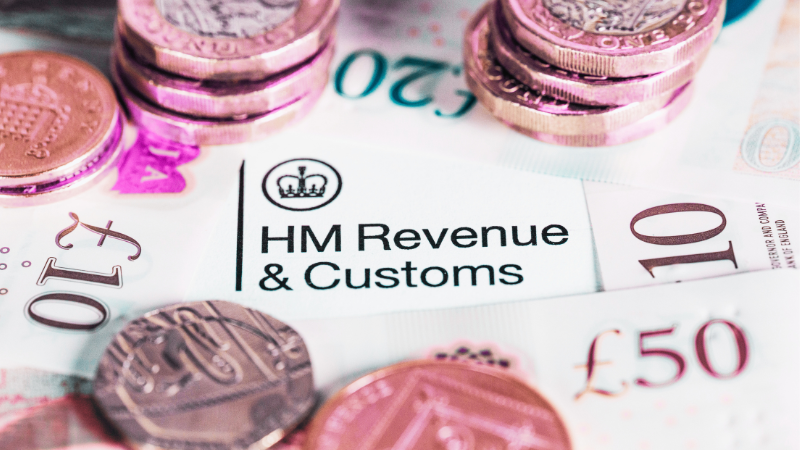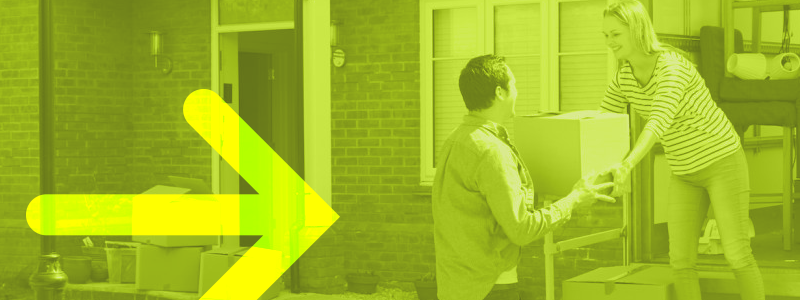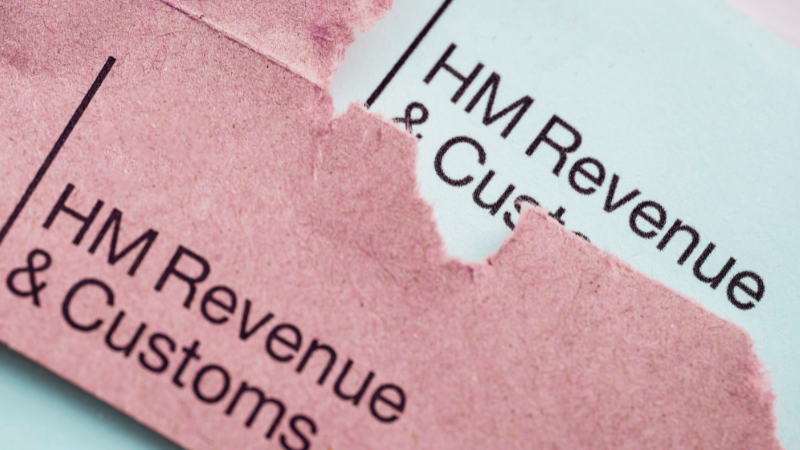How to Get a Self Employed Mortgage: A Proven Guide That Actually Works


Did you know that more than four million people in the UK are self employed? They make up around 12% of the country's workforce.
Lenders typically require two or three years of accounts to verify your ability to make repayments. Some lenders even limit how much you can borrow once you reach a certain loan-to-value ratio. The good news is that getting a mortgage while self employed isn’t impossible. You can definitely secure a mortgage with the right documentation and preparation.
This complete guide shows you everything you need to know about getting a mortgage when self employed. You’ll learn if you qualify as self employed (which typically means owning a 20-25% share in a business that provides most of your income). We’ll cover the documents you need and show you practical ways to make your application stronger.
Are You Classed as Self Employed?
Knowing if you’re self employed is a vital first step to getting a mortgage. The way you structure your business affects how lenders look at your application and what paperwork you need.
Sole trader, contractor or company director?
Mortgage providers look at several business models in the self employed world:
- Sole traders run their businesses alone and take full responsibility for success or failure. Lenders will look at your net profit when you apply for a mortgage—the money left after paying all business expenses.
- Contractors provide services to businesses for fixed periods or specific projects. You can work as a sole trader or through a limited company. Some lenders calculate your yearly income by taking your daily rate, multiplying it by your working week, and then multiplying the result by 46-48 weeks.
- Company directors with shares in a limited company count as self employed. Your income assessment comes from salary and dividends taken from the business. Some lenders might look at your company’s retained profits, too.
- Freelancers often work as sole traders or contractors who take on time-bound or project-based work.
How lenders define self employment
You’re self employed in most lenders’ books if you own 20-25% or more of a business that gives you your main income. Barclays sets this mark at 20%.
Partners get assessed based on their share of the partnership’s net profit. Your maximum loan usually depends on your profit share multiplied by the lender’s income factor.
Self employed applicants need detailed financial records to show stable income, unlike employees who just show their payslips. This makes getting a mortgage trickier for self employed people than those with permanent jobs.
Lenders know that if a limited company fails, directors face tough legal situations. A skilled full-time employee can find similar work if they lose their job.
What if you’re newly self employed?
Getting a mortgage as a newly self employed person brings extra challenges. Most regular lenders want two to three years of accounts.
Some specialist lenders might work with:
- Company directors trading for 9-12 months
- Sole traders in business for under a year
- Businesses that have just changed their trading style or incorporated
- Contractors on existing contracts for less than a year
Applications with less than two years of paperwork face closer checks. Fewer lenders will look at your case, and those who do will take a deep dive into what you can afford.
Proof of steady work and future contracts helps your case. Experience in a similar job before going self employed can boost your application.
Getting a self employed mortgage with one year of accounts is possible but tough. Your chances get better with two to three years of steady income records.
What You Need Before Applying
Getting your paperwork ready for a self employed mortgage takes more work than a regular employment application. You’ll save time and reduce stress by collecting everything you need before starting the process.
Proof of ID and address
Every mortgage applicant needs to prove their identity and where they live, no matter their job status:
- Proof of identity – A valid passport or driving licence
- Proof of address – Recent utility bills (from the last three months), council tax bills, or driving licence with your current address
Lenders need these documents to follow UK money laundering rules and check who you are before they process your application.
SA302s and tax year overviews
SA302s and tax year overviews are the foundations of proving your income for self employed mortgage applications:
- SA302 forms – These HMRC documents show your income and tax paid for each tax year
- Tax year overviews – These show your final tax position after all calculations
Most lenders want to see these documents from the last two to three years. The latest year should be no more than 18 months old. You can get these documents in several ways:
- Print them from your HMRC online account 72 hours after filing your tax return
- Call HMRC to request paper copies (they take up to two weeks to arrive)
- Download them from the tax software you used to submit returns
Lenders trust SA302s as proof of your earnings because they come straight from HMRC.
Business accounts and bank statements
Lenders also need to see how your business is doing financially:
- Certified accounts – Usually two years of completed accounts, best if prepared by a qualified accountant
- Bank statements – Three to six months of both business and personal statements
Lenders look at your last two years’ average net profit to check what you can afford if you’re a sole trader or partner. Company directors need extra paperwork:
- Director salary payslips
- Dividend drawdown vouchers
Your application looks much stronger with accounts prepared by a qualified accountant. One expert says, “If your circle of genius is not accounts, please hire someone who is”.
Evidence of future income or contracts
This part really helps contractors and company directors show a stable income:
- Signed contracts – Papers showing confirmed future work
- Business plans – Company directors should include future business forecasts
- Contract extensions – Include the extension letter if your contract has been renewed
These extra documents help new self-employed applicants or those with changing income patterns. They show lenders you’ll keep earning money beyond what past figures show.
Getting all your paperwork ready shows lenders you’re financially responsible and speeds up the mortgage process. Your chances of approval get better when you help lenders understand your business and how you make money.
How Much Can You Borrow?
The amount you can borrow for your self employed mortgage depends on your documentation and several other factors specific to self employed applicants.
How lenders assess affordability
Lenders use a different approach to calculate your maximum mortgage amount if you’re self employed:
- Sole traders – Your net profits averaged over the last two to three years help lenders assess what you can afford
- Limited company directors – Your salary plus dividends matter most to lenders, though some look at retained profits and pension contributions too
- Contractors – Your annual income calculation comes from your day rate multiplied by your typical working week, then by 46-48 weeks
- Partnerships – Your share of the business’s net profit determines your maximum loan
Most lenders let self employed borrowers get mortgages up to 4.5 times their annual income based on two to three years of accounts. The multiplier can change a lot. Some specialist lenders go up to 5-5.5 times income, while others limit it to just 3.5 times for self employed applicants.
Lenders look at your household spending to get a full picture. This includes utility bills, loan repayments, childcare costs, and daily expenses. They need to know you can handle the monthly repayments comfortably.
Loan-to-value and deposit size
Your deposit size shapes your borrowing power and mortgage terms:
Most mainstream lenders provide self employed mortgages up to 90-95% loan-to-value (LTV), so you need a 5-10% deposit at least. Some lenders might restrict self employed borrowers to 85-90% LTV, asking for bigger deposits than employed applicants.
Your deposit affects several parts of your mortgage:
- Interest rates – Better rates come with larger deposits
- Available products – Bigger deposits unlock more favourable mortgage options
- Monthly repayments – Borrowing less with higher deposits can make monthly payments easier to manage
Lenders like Nationwide are making their entire product range available to self employed borrowers up to 95% LTV.
Impact of credit score and expenses
Your credit score shapes your borrowing amount and available interest rates:
Good credit shows lenders you’re financially responsible and can handle repayments. Bad credit might limit your options and lead to higher interest rates or bigger deposit requirements.
Lenders take a close look at your expenses to figure out affordability. They check:
- Regular household bills and commitments
- Outstanding debts and credit cards
- Personal spending habits and lifestyle costs
- Business expenses that could affect your profits
Unnecessary subscriptions, online gambling, or maxed-out credit cards can hurt your borrowing power.
Better credit scores, lower debt, and careful expense management can boost your borrowing power for a self employed mortgage by a lot. A bigger deposit gives you access to better mortgage options and might increase your borrowing capacity.
Need more help? Check our quick help guides:

Ways to Improve Your Mortgage Chances
Getting a mortgage when you’re self employed takes smart planning before you submit your application. Lenders look at self employed applicants more carefully, but you can take several steps to make your application stronger.
Check and fix your credit report
Your credit history is a vital part of mortgage applications. Here’s what you need to do:
- Get reports from all three major agencies—Experian, Equifax, and TransUnion—since different lenders use different agencies
- Look through files to spot errors like wrong balances or old addresses
- Dispute any mistakes by reaching out to the agency directly
- Stay away from payday loans – lenders see these as warning signs of money problems
- Show you can handle credit responsibly over time
Remember not to apply for multiple credit products right before your mortgage application. Each application leaves a mark that might make lenders think you’re struggling financially.
Mortgageable offers a free Equifax Credit Report as part of its service, with no obligation to proceed. Something worth considering.
Avoid big expenses before applying
Your spending habits in the months before applying matter a lot to lenders:
Make sure you earn more than you spend each month. Lenders usually look at three months of bank statements to see how you manage your money. Regular bills are fine, but try to stay out of your overdraft.
Big one-time purchases like holidays are usually okay if they match your income level. In spite of that, paying off existing debts first helps your debt-to-income ratio look better.
Register to vote and reduce debt
Getting on the electoral roll makes a bigger difference than most people realise:
Signing up to vote helps lenders check who you are and where you live, which speeds up your application. More than that, it helps boost your credit score. Experian says being on the electoral register proves your name and address reliably.
Among other things, having less debt shows you’re good with money. Here’s what you can do:
- Pay more than the minimum on your credit cards
- Pay off any County Court Judgements within a month so they don’t show up on your credit file
- Clear any personal loans if you can
Use a mortgage broker for self employed cases
A specialist mortgage broker is a great way to get help when you’re self employed:
Brokers know which lenders will look at self employed cases with less than two years of proof. They can match you with lenders who fit your situation, which means you’re more likely to get approved and protect your credit score.
Many specialist lenders who work with self employed people are only available through brokers. This is a big deal as it means that 56% of freelancers who used brokers found getting a mortgage either somewhat or very easy.
Applying for a Self Employed Mortgage
Your preparation efforts for getting a self employed mortgage culminate in the application process. You’ve gathered your documents and checked your borrowing potential, so let’s start your application.
Get a Decision in Principle
A Decision in Principle (DIP)—also known as an Agreement in Principle (AIP) or mortgage in principle—should be your first step. This early review shows how much you might be able to borrow. Most estate agents and sellers want to see this document to know you’re a serious buyer.
To get a DIP:
- Use your lender’s online affordability calculator
- Provide simple financial information for review
- A soft credit check will be done that won’t impact your credit score
You can complete a DIP online in about 10 minutes. Decisions come through right away between 6am-10pm on weekdays and 6am-9pm on Sundays. Your DIP stays valid for about 30 days, letting you submit a full application without starting over.
Submit your documents
After your offer gets accepted on a property, submit your full mortgage application with your self employed paperwork:
- Certified accounts from the past two years
- SA302 forms and tax year overviews from HMRC
- Recent bank statements (personal and business)
- Proof of ID and address
- Evidence of upcoming work or contracts
Company directors should also include proof of dividend payments or retained profits documentation. A qualified accountant’s preparation of your accounts can significantly boost your credibility with lenders.
What happens after you apply
Underwriters will review your application and might ask for more information. Lenders look at several factors:
- Your income stability is based on past earnings
- Whether your bank transactions match your stated income
- Your long-term ability to keep up with mortgage payments
Most applications take about a month from submission to mortgage offer, though straightforward cases can move faster. Your broker can help explain any questions about your business operations or income structure to the lender, which could improve your chances of approval.
Conclusion
Getting a mortgage as a self employed person comes with its own set of challenges. But don’t worry – you can definitely get one with the right preparation. This piece explains how lenders view self employment, what papers prove your stable income, and how lenders assess business owners’ affordability.
Most lenders ask for two to three years of accounts, but some specialist lenders might work with shorter histories. Your business setup – whether you’re a sole trader, contractor, or company director – affects how lenders assess your application and what documents you need.
You’ll save time and reduce stress by organising your paperwork early. SA302s, tax year overviews, certified accounts, and bank statements are the foundations of your application. Future contract evidence makes your case stronger, especially if you’re new to self employment.
Your credit history is vital to mortgage approval. Check your reports, fix errors, register to vote, and pay down existing debt to boost your chances. Smart financial moves include keeping unnecessary expenses low before you apply.
A specialist mortgage broker becomes invaluable if you’re self employed. These experts know which lenders match your situation best and can help increase your approval odds while protecting your credit score.
Start with a Decision in Principle after your preparation to boost your house-hunting confidence. Once you find your property and submit the full application, be patient while underwriters assess your business finances.
Self employed people might face a more complex path to homeownership. But with knowledge and preparation on your side, you can secure your needed mortgage. Your entrepreneurial drive built your business – now it can help you get your new home too.
Key Takeaways
Getting a self employed mortgage requires more preparation than traditional employment, but it’s absolutely achievable with the right approach and documentation.
• Most lenders require 2-3 years of accounts, but specialist lenders may consider applications with just 9-12 months of trading history for certain business structures.
• Essential documents include SA302s, tax year overviews, certified accounts, and bank statements—having accounts prepared by a qualified accountant significantly strengthens your application.
• You can typically borrow 4.5 times your annual income, though some specialist lenders offer up to 5.5 times, with most requiring at least a 5-10% deposit.
• Improve your chances by checking your credit report, registering to vote, reducing existing debt, and avoiding large expenses before applying.
• Use a specialist mortgage broker who understands self employed cases—they can access lenders not available directly and match you with the most suitable options.
The key to success lies in thorough preparation and understanding that whilst the process is more complex than for employed applicants, homeownership remains entirely within reach for self employed individuals who demonstrate financial stability and responsibility.







